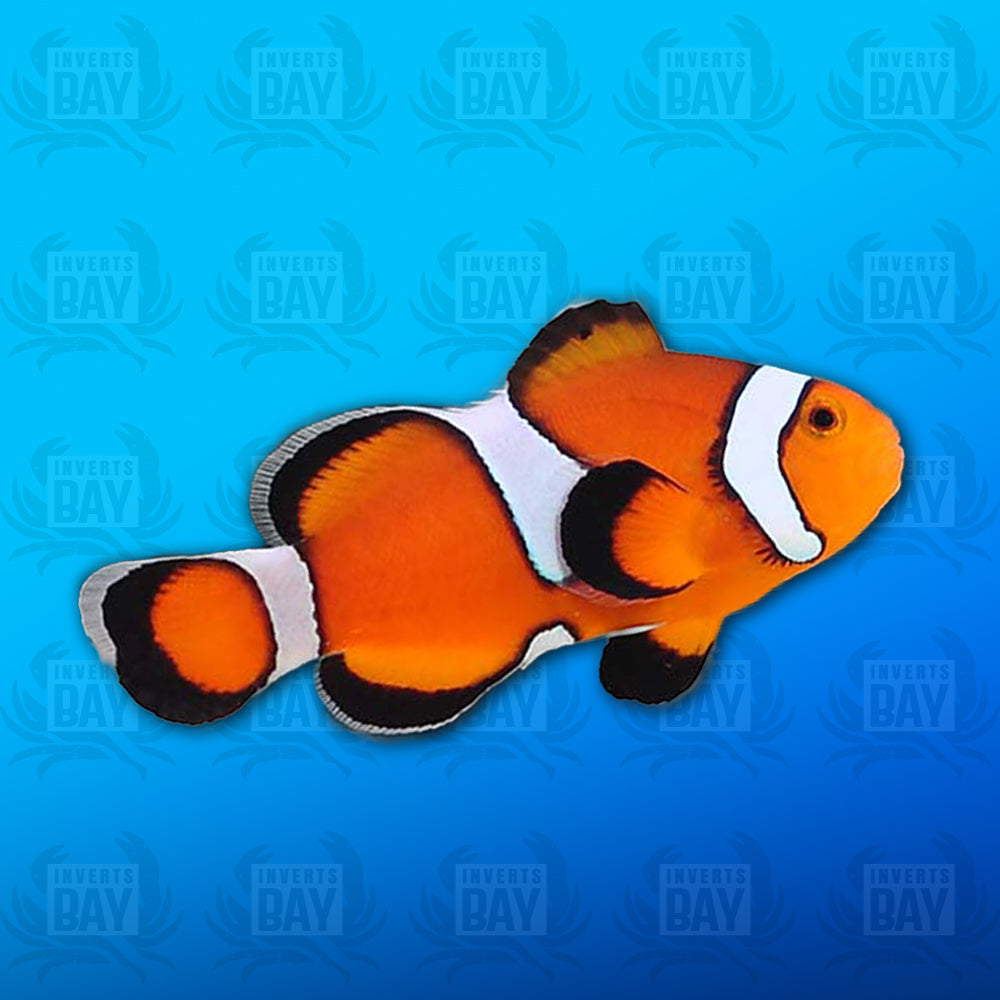(!) Online orders may be adjusted or canceled in the event of pricing errors or unavailable items.
1
/
de
1
Inverts Bay
Misbar Ocellaris Clownfish
Misbar Ocellaris Clownfish
Prix habituel
$50.00 CAD
Prix habituel
Prix promotionnel
$50.00 CAD
Prix unitaire
/
par
Frais d'expédition calculés à l'étape de paiement.
Impossible de charger la disponibilité du service de retrait
The Misbar Ocellaris Clownfish (Amphiprion ocellaris) is a unique and striking variant of the classic Ocellaris Clownfish. Known for its irregular white bands (misbars) across its orange body, this clownfish variation is highly prized for its distinctive appearance and hardy nature, making it a great choice for both beginner and experienced aquarists.
(REEF SAFE / BEGINNER)
Essential Information:
- Common Names: Misbar Ocellaris Clownfish, Misbar Clownfish, Ocellaris Clownfish
- Scientific Name: Amphiprion ocellaris
- Family: Pomacentridae
- Origin/Habitat: Native to the Indo-Pacific, including areas like the Great Barrier Reef, found around coral reefs and associated anemones.
- Maximum Size: Up to 3.5 inches (9 cm)
- Lifespan: Typically 6–10 years with proper care
- Level of Difficulty: Easy; the Misbar Ocellaris Clownfish is known for its hardiness and is an ideal choice for both beginner and advanced aquarists.
Appearance & Physical Traits:
- Coloration & Pattern: The Misbar Ocellaris Clownfish is similar to the regular Ocellaris Clownfish but has irregular or "misbar" white bands. These bands are often incomplete, creating a unique and distinctive appearance compared to typical clownfish.
- Body Shape & Structure: It has a stocky, compact body with a large head. Its rounded, muscular body and long fins allow it to move gracefully, while its small mouth is adapted for feeding on a variety of foods.
Habitat & Environmental Needs:
- Minimum Tank Size: 20 gallons (76 liters) or larger.
- Water Temperature: Maintain between 74°F and 80°F (23°C to 27°C).
- pH Level: Keep between 8.1 and 8.4.
- Specific Gravity: Optimal range is 1.023 to 1.025.
- Aquascape: Provide live rock with plenty of hiding spots and crevices. Although the Misbar Ocellaris Clownfish can live without an anemone, it will often form a symbiotic relationship with one, if available.
Diet & Feeding:
- Diet Type: Omnivorous
- Preferred Foods: Accepts a wide variety of foods, including flakes, pellets, frozen foods, and live foods such as brine shrimp. A balanced diet including both meaty and vegetable-based foods is essential.
- Feeding Frequency: Feed 1–2 times daily, offering a varied diet to ensure proper nutrition.
Behavior & Compatibility:
- Temperament: Peaceful and hardy, the Misbar Ocellaris Clownfish is generally very docile but can become territorial, especially around its anemone or hiding spots.
- Social Behavior: Best kept singly or in pairs. It may show aggression toward other clownfish unless they are a bonded pair. It is a very social species, enjoying the company of other peaceful tank mates.
- Tank Mate Compatibility: Compatible with most peaceful reef fish. Avoid aggressive species or other clownfish unless they are part of a bonded pair.
- Activity Level: Active and curious, often seen darting between rocks and exploring its environment. It enjoys swimming around the tank and can be seen near its shelter or anemone.
Care Considerations & Additional Notes:
- Ease of Care: The Misbar Ocellaris Clownfish is very hardy and easy to care for, making it an excellent choice for beginner aquarists. It thrives in stable, well-maintained reef environments.
- Special Requirements: While it can live without an anemone, providing one will encourage the clownfish to form a symbiotic relationship. This relationship benefits both the clownfish and the anemone, although it is not a requirement for their well-being.
- Breeding Info: This clownfish variety can be bred in captivity. Clownfish form strong pair bonds, and breeding them can be a rewarding experience for aquarists.
- Additional Notes: The Misbar Ocellaris Clownfish’s unique and irregular band pattern makes it a popular and sought-after variation. It’s an ideal fish for reef tanks and is a peaceful companion to many other species, as long as territorial boundaries are respected.
Share

